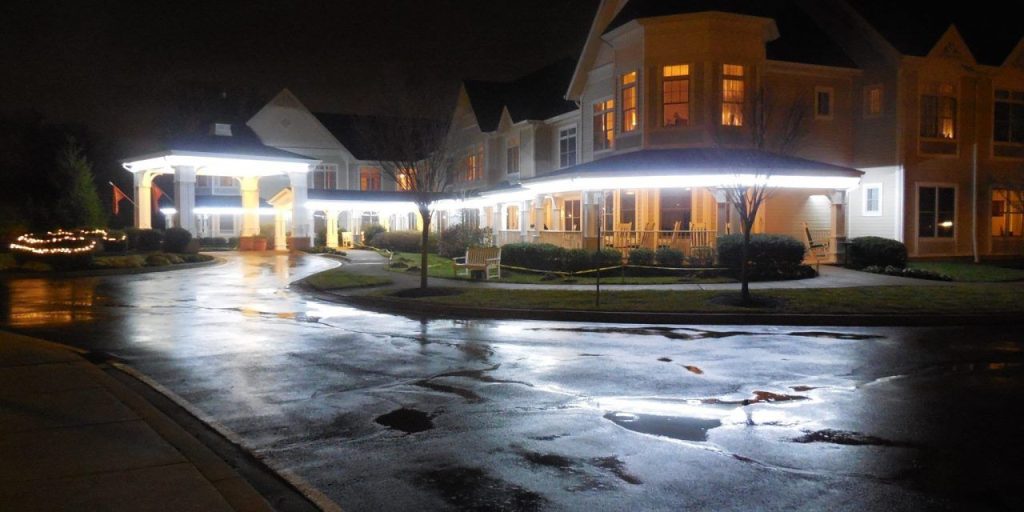In today’s hectic and efficiency-focused corporate world, innovative lighting designs are increasingly taking the place of traditional commercial settings. Businesses’ approaches to workplace design, energy use, and environmental responsibility have changed significantly as a result of the use of adaptive lighting systems, which may save operating costs and improve the occupant satisfaction.
This development is not only a fad; rather, it is the next phase in the development of extremely flexible, effective, and sustainable business settings. In commercial buildings, retail establishments, or industrial settings, smart lighting techniques are changing the standards and results.
Table of Contents
Enhancing Flexibility and Functional Control
Fashionable lighting systems offer unmatched control via focused dashboards or smartphone apps. Facility managers may alter lighting schedules, brightness levels, and even color temperature to enhance branding, mood, and productivity due to this degree of accuracy. For instance, whilst colder colors in professional settings improve attention and alertness, warm tones in hospitality settings might promote relaxation.
These controls are also significant in outdoor settings. In addition to enhancing building aesthetics, a competent commercial outdoor lighting installation guarantees safety and visibility for parking lots, walkways, and external elements. Businesses may save maintenance and energy expenses while also improving functionality by including motion sensors, dimming capabilities, and smart timers.
Increasing Productivity Using Automation
One of the most appealing features of smart lighting is its ability to control and maximize energy use. Conventional lighting systems contribute to needless energy consumption by frequently staying on when not needed. On the other hand, smart systems make use of programmable controls, occupancy sensors, and daylight harvesting technologies to guarantee that illumination is only utilized when and where it is required.
Working with a reputable commercial lighting service provider is essential for establishments looking for professional help with these improvements. Experts in this field contribute technological know-how and system integration abilities that enable companies to optimize energy savings without sacrificing coverage or light quality.
Motivation of Smart Building Communities
Lighting doesn’t just happen. It is being incorporated more and more with more comprehensive building management systems (BMS) in progressive commercial constructions. By monitoring occupancy patterns, managing HVAC consumption based on real-time activity, and improving overall facility performance, this connection facilitates data-driven decision-making.
Lights can be configured to respond to weather patterns and seasonal daylight variations, for instance, or to communicate with security systems by automatically turning on when activity is detected during off-peak hours. A facility can get additional knowledge and responsiveness by installing commercial outdoor lighting that connects to access control systems or surveillance cameras.
Reducing Long-Term Expenses
Even though smart lighting infrastructure may require a larger initial investment than conventional systems, there are significant long-term savings. Strong return on investment is a result of decreased maintenance costs, longer bulb lifespans, and lower energy bills.
The experience of a corporate lighting service contractor ensures that the system is installed and customized for optimal functionality. This include choosing technology that is suitable with upcoming updates, deciding on zoning plans, and doing lighting audits.
Minimizing the Effects on the Environment
Sustainability is becoming an essential corporate requirement rather than a specialty issue. By using less energy and drastically reducing carbon emissions, smart lighting directly promotes green projects. These systems, when combined with LED technology, offer a durable and cost-effective substitute for conventional lighting.
Along with being good for the environment, this also complies with legal requirements and green building certificates. A skilled commercial lighting service provider can assist in navigating the technical and legal requirements, guaranteeing that installations are long-lasting and follow industry standards.
Improving the User Interface
In retail contexts, innovative lighting creates memorable customer service. Throughout the day, dynamic lighting may be changed to represent shifting emotions, special offers, or seasonal themes, which might affect consumer behavior. Personalized lighting management has also been demonstrated to increase worker satisfaction and productivity in office environments.
Smart lighting systems reduce the need for manual intervention by adapting to user behavior via the use of sophisticated sensors and adaptive learning. Spaces that are more responsive and pleasant and catered to the demands of users are produced by this smooth interaction.
Preparing Commercial Spaces for the Future
Smart lighting is a fundamental technology as the business environment changes due to developments in artificial intelligence, the Internet of Things (IoT), and sustainability regulations. In addition to supporting present operating objectives, it grows with upcoming advances.
By incorporating smart lighting now, commercial establishments are better equipped to meet future needs. With the assistance of skilled experts, integrating cutting-edge lighting techniques into new construction or retrofitting an existing building guarantees continued relevance and effectiveness.
Final Remarks
As smart lighting solutions become increasingly popular, business facilities are becoming more sustainable, flexible, and efficient. Investing in intelligent lighting infrastructure allows businesses to save energy while also opening up new possibilities for improved customer happiness, safety, and performance.
Commercial spaces may fully use the possibilities of these technologies with the help of an experienced commercial lighting service provider and careful outside lighting installation. Smart lighting is becoming more than simply a smart option; it’s a strategic one as expectations increase and technology advances.

